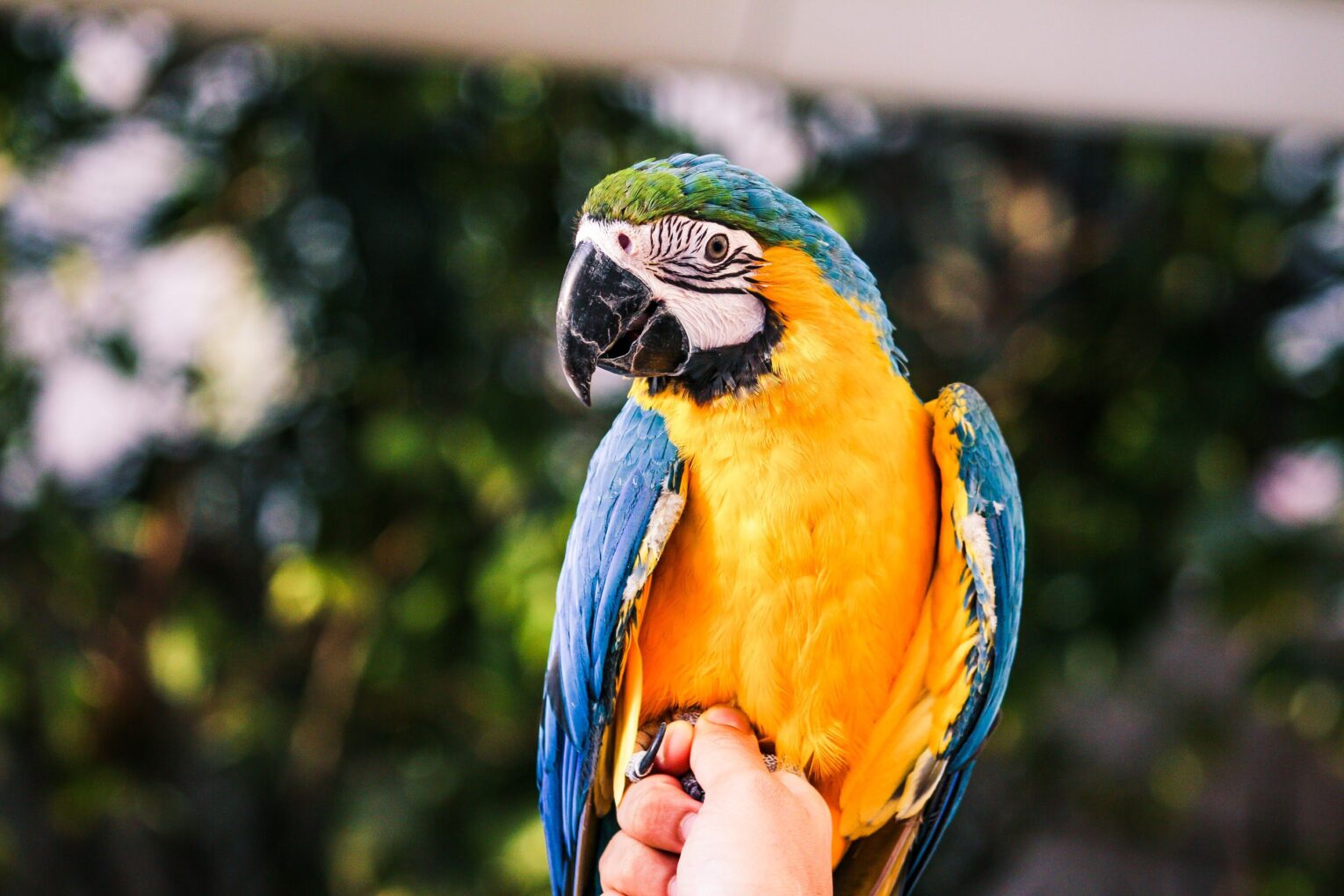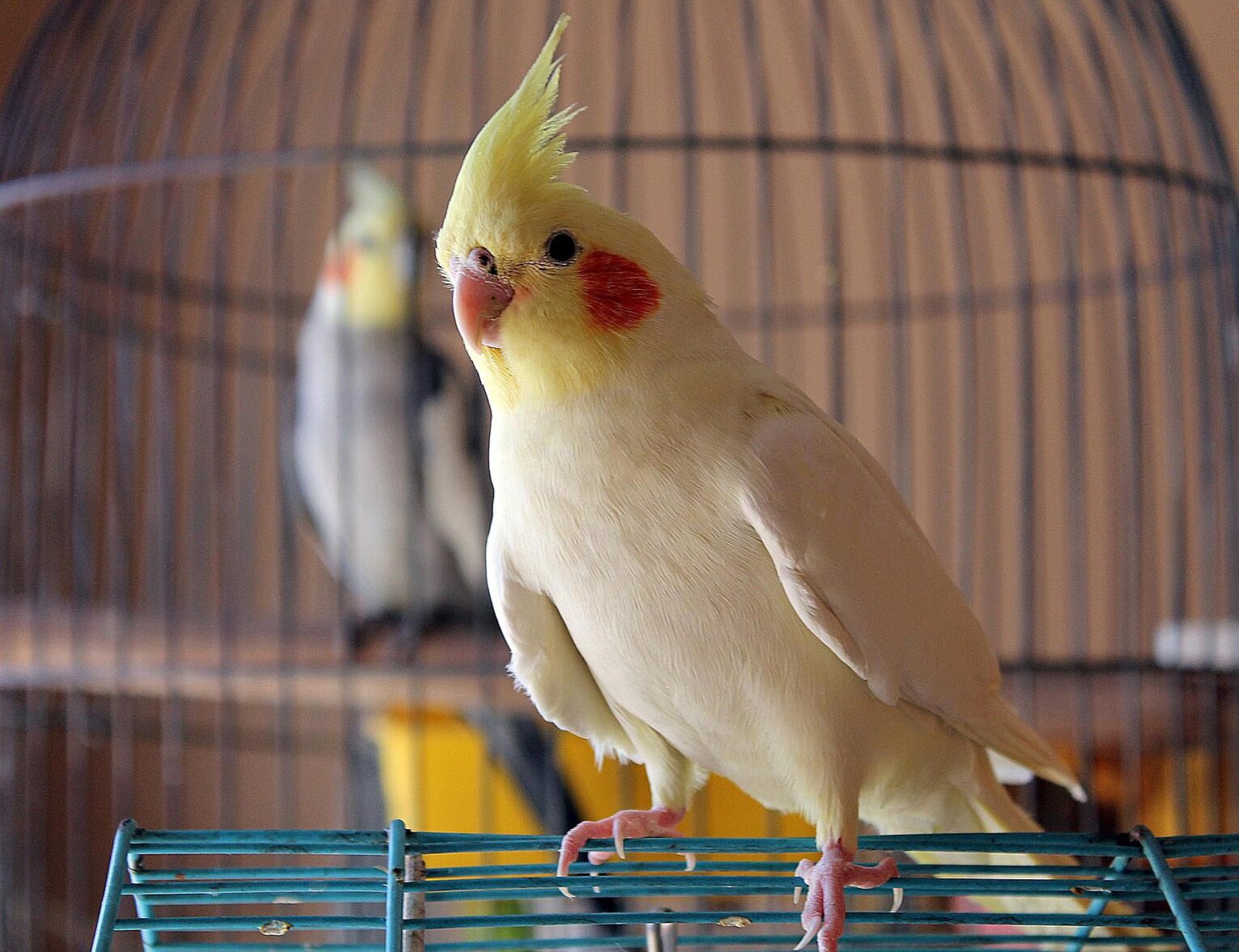
An Enthusiastic Heart isn’t Enough
The captivating allure of parrots often beguiles prospective owners, leading them to make decisions based purely on the magnetism of these feathered wonders. However, there’s much more to parrot ownership than just acquiring a talking companion. Just like a siren’s song, their beauty and intelligence can be deceiving. A classic case is the much-coveted African grey parrot. With its remarkable talking ability, it easily becomes a showstopper, but digging a little deeper, one discovers that it isn’t a bird for every household.
Starting Simple
For the fledgling parrot parent, a more manageable bird like the cockatiel might be the ideal starting point. However, do not be misled into believing that ‘beginner’ parrots equate to low-maintenance companions. Each parrot species, regardless of its reputation, demands specific attention, diet, and housing.
The Real Questions
Before embarking on the avian adventure, ask yourself:
- Do I have ample space for a sizable bird cage?
- Am I ready to invest in a specialized diet for my feathery friend?
- Can I set aside funds for emergency vet visits?
- How would I handle a bird that’s more bitey than chirpy?
Prepare for the Unexpected
It’s vital to understand that, like all animals, parrots come with their own unique personalities and potential health issues. Your parrot might have quirks you never anticipated. But for those who persevere, the rewards of a loyal, entertaining, and loving companion are immense.
Educate Before You Adopt
We can’t stress this enough: knowledge is the key. If you’re considering introducing a parrot into your life, arm yourself with all the relevant information. Our comprehensive article, “10 Things to Consider If You Want a Parrot as a Pet,” is a great starting point. Moreover, we offer detailed care guides for numerous parrot species. Dive deep into these resources to understand your potential pet’s needs and quirks better.
In the end, while parrots can be an absolute delight, they’re not your average pet. Being well-prepared ensures that you and your feathered friend embark on a harmonious journey together.
The Parrot Pursuit: Navigating the Breeder Landscape
Step 1 Achievement Unlocked!
Congratulations on moving past the initial contemplation stage! If you’re reading this, it means you’re one step closer to hearing the delightful chirrups of your dream parrot at home. At Parrot Essentials, we’re staunch advocates for adoption over purchase. Yet, we acknowledge that a rescued parrot might carry emotional scars that a novice owner isn’t prepared for.
Adopt or Shop?
Rescue birds are wonderful creatures, but they can come with unseen traumas. If you’re not equipped or ready for the potential challenges, it may be prudent to consider breeders instead. Pet stores? We’d advise caution. The mystique surrounding the origins of their birds can be a red flag. You certainly don’t want to inadvertently support a “parrot mill” – a breeding facility notorious for its ill-treatment of these beautiful beings.
Breeder Bound? Here’s How to Begin:
Embarking on the journey to find a trustworthy breeder can seem daunting. Let our expertise guide you with some foolproof steps:
- Local Parrot Associations: These groups often maintain a list of reputable breeders in the vicinity.
- Digital Platforms: Dive into parrot-centric Facebook groups or forums. They’re treasure troves of insights, reviews, and recommendations.
- Word-of-Beak: It may sound old-fashioned, but nothing beats personal recommendations. Ask local acquaintances about their experiences with breeders.
The First Contact:
Once you’ve shortlisted potential breeders, initiate communication. Whether you prefer a classic phone call or a quick email, ensure you convey your interests and requirements. Gauge their professionalism by their response. Do they seem knowledgeable and passionate? Don’t hesitate to request photographs or videos of available birds. Details about the parrot clutch can also offer valuable insights into the bird’s upbringing.
Remember, this is not just a transaction but the beginning of a lifelong bond. Take your time, ask questions, and ensure you’re making the best decision for both you and your soon-to-be feathered companion.

Choosing Your Parrot: The Essential Breeder Visit Guide
Don’t Skip the In-Person Check!
Purchasing a parrot is no ordinary transaction—it’s a lifelong commitment. This is precisely why we can’t emphasize enough the importance of visiting your chosen breeder. While hygiene concerns and disease prevention can make some breeders hesitant about visitor access, as a potential bird parent, it’s paramount to know exactly where and from whom you’re getting your new companion. Bypass the clandestine parking lot meetings and go straight to the source!
Gearing Up for the Visit:
A checklist is your friend. Prepare a set of questions and key observations, especially if the breeder is a hobbyist operating from their residence.
Here’s What You Should Pay Attention To:
- Hygiene: Inspect the cages. While breeding cages might be on the smaller side, they mustn’t be overly cramped or unsanitary. Spotless water and food dishes, an absence of rust, and no accumulation of droppings are the benchmarks.
- Breeder’s Expertise: Cross-verify the breeder’s insights with your preliminary research. Their handling techniques and general attitude towards their birds can reveal a lot. While a breeder might have a more pragmatic approach compared to an average parrot owner, they shouldn’t treat the birds as mere commodities.
- Overall Health: Take a good look at the birds. Vital signs include clear eyes, intact feathers, and proper beak and nail lengths. Moreover, inquire about their avian vet and any medical documentation for the bird of interest or its parents.
- Diet: Assess the bird food given to the birds. A nutritionally rich diet is paramount, with a red flag being a seed-only diet. Ideal scenarios involve parents predominantly feeding their young, with the breeder occasionally supplementing using a proper formula.
- Breeding Protocols: Prior research about your chosen parrot species will tell you the right breeding age. Double-check that the breeder doesn’t start breeding them too young and isn’t overbreeding.
- After-Sales Measures: A sick bird can be heartbreaking. Before sealing the deal, ensure you have clarity on return and refund policies.
It may seem daunting, but a reputable breeder will appreciate your thoroughness. Trust your instincts—if something feels amiss or the breeder fails to answer satisfactorily, don’t hesitate to walk away. No pressure tactics should sway you.
Golden Tip: The perfect breeder will be as curious about you as you are about them. If they’re genuinely committed to their birds’ welfare, they’ll scrutinize your readiness and resources, possibly even seeking evidence of a ready habitat. Always view such queries in a positive light—they’re a mark of a responsible breeder

The Breeder Red Flags: What Every Parrot Enthusiast Should Know
Listen Closely: A Note from Experience
Our extensive journey with parrot training and managing a parrot hotel has exposed us to the diverse personalities and backgrounds of hundreds of birds. Regrettably, numerous parrots exhibited behavioural challenges such as biting, undue vocalization, anxiety, feather plucking, and the list goes on. Desperate owners would often seek our guidance.
What’s our crucial takeaway from these experiences? The breeder plays a pivotal role. Many parrots exhibited these troubles due to early maltreatment or inappropriate bird husbandry techniques, even before reaching their forever homes. Here, we’ll dive into some common yet critical issues we’ve observed:
Beware of These Breeder Pitfalls:
The Wing Clipping Controversy:
- The Alarm Bells: If a breeder consistently clips the wings of their flock, attempts to sell you a bird with trimmed wings, or advises wing clipping, exercise caution.
- The Concern: While wing clipping is not uncommon, it’s a practice we caution against, except in medically justified circumstances (e.g., a visually impaired bird). Clipping doesn’t merely rob a bird of its natural essence, but also exposes it to potential health and behavioural problems. Improper wing clipping can lead to physical injuries, and the reduced mobility can precipitate health issues like obesity. Moreover, by clipping a bird’s wings, you’re depriving a prey animal of its primary defense mechanism: flight. This could push the bird towards other defense strategies, including aggression.
Dive Deeper: Check out our detailed article on the pros, cons, and nuances of wing clipping.
Premature Parental Separation:
- The Marketing Hype: Breeders might flaunt their fully hand-reared chicks, implying that they form stronger bonds with humans.
- The Underlying Truth: Parrots denied the chance to develop naturally with their bird family can manifest serious behavioral disorders. Issues such as separation anxiety leading to incessant screeching or self-inflicted harm aren’t rare. Another fallout? A pronounced fear of unfamiliar objects or settings.
The significance of social learning in parrots can’t be stressed enough. By observing other parrots, they imbibe essential life skills. Depriving them of this opportunity can render them frustrated, leading to a skewed understanding of social cues. This can result in the bird forming inappropriate bonds, even viewing their human caretakers as potential mates, leaving them perplexed when their natural instincts aren’t reciprocated.
It’s completely acceptable for breeders to engage extensively with their chicks, ensuring they’re well-socialized, or occasionally hand-feed them. However, extreme caution should be exercised if a breeder separates chicks from their parents prematurely. The last thing you’d want is a parrot that’s too attached to you and simultaneously terrified of the world around it.
In Conclusion: A thorough understanding of these potential pitfalls can equip you to make informed decisions, ensuring the well-being of your soon-to-be feathery friend and forging a harmonious bond for years to come.

Navigating Life Post-Parrot Purchase
The Journey Begins: Acquiring a parrot isn’t the culmination of your feathery adventure; it’s merely the commencement. As a new avian parent, there are several key things you must attend to.
First Stop: Vet’s Office: Your primary duty is to ensure your parrot’s health. Seek a reputable avian vet and schedule a thorough examination pronto. Especially if you have other feathered friends at home, ensure you keep your newest member isolated until the check-up confirms it’s safe to introduce them to one another.
Evaluating the Breeder: Your relationship with the breeder shouldn’t dissipate post-purchase. It’s instructive to observe how they engage after the transaction. Do they still exhibit genuine concern for the bird’s well-being? Are they accessible for any post-purchase queries or guidance? Their post-sale behavior can offer valuable insights into their authenticity and if they’re worth revisiting for future acquisitions.
Understanding Your New Companion: Parrots are astoundingly bright, which makes them both enchanting and occasionally challenging. Their intelligence can sometimes translate into initial anxiety as they acclimatize to their new surroundings. So, if your bird appears jittery or momentarily snappy, be compassionate and give it time. Engage in continual learning on parrot care, and consider introducing elementary commands like “step up” early on to foster trust and bond.
Parting Thoughts: Welcoming a pet into your life is an endeavor of love and commitment. With parrots, you’re often signing up for decades of companionship! Although the guidance might seem extensive, these precautions and knowledge nuggets are invaluable in making your parrot journey rewarding and joyous. It’s about ensuring that your feathery friend has the best life possible, and that you, in return, enjoy the unparalleled joy of their company.
Until next time, wishing you and your parrot boundless joy and harmony, from all of us at Parrot Essentials!
